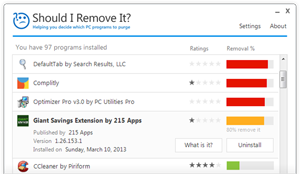Import table
advapi32.dll
TraceMessage, RegCloseKey, RegConnectRegistryW, GetLengthSid, IsValidSid, GetTraceEnableFlags, GetTraceEnableLevel, GetTraceLoggerHandle, RegisterTraceGuidsW, UnregisterTraceGuids, SetSecurityDescriptorDacl, AddAccessAllowedAce, InitializeAcl, SetSecurityDescriptorGroup, SetSecurityDescriptorOwner, GetTokenInformation, InitializeSecurityDescriptor, OpenProcessToken, RegDeleteKeyW, RegOpenKeyExW, RegQueryValueExW, RegSetValueExW, RegEnumValueW, AddAccessDeniedAce, LookupAccountNameW, MakeSelfRelativeSD, ReportEventW, RegisterEventSourceW, StartServiceCtrlDispatcherW, RegisterServiceCtrlHandlerW, SetServiceStatus, RegCreateKeyExW
comsvcs.dll
CoLeaveServiceDomain, CoEnterServiceDomain
kernel32.dll
DeleteCriticalSection, InitializeCriticalSection, ResetEvent, SetThreadPriority, LocalFree, GetCurrentProcess, InterlockedDecrement, InterlockedIncrement, LeaveCriticalSection, GetVersion, VirtualQuery, GetModuleHandleW, GetProcAddress, VirtualAlloc, VirtualProtect, ReleaseSemaphore, CreateSemaphoreW, GetSystemInfo, CreateThread, CreateEventW, HeapSetInformation, FormatMessageW, LocalAlloc, GetQueuedCompletionStatus, GetLocalTime, ExpandEnvironmentStringsW, UnhandledExceptionFilter, TerminateProcess, GetSystemTimeAsFileTime, GetCurrentProcessId, GetCurrentThreadId, QueryPerformanceCounter, GetModuleHandleA, SetUnhandledExceptionFilter, OutputDebugStringA, InterlockedCompareExchange, InterlockedExchange, WideCharToMultiByte, MultiByteToWideChar, SetEvent, WaitForSingleObject, ResumeThread, CreateIoCompletionPort, Sleep, PostQueuedCompletionStatus, GetComputerNameW, GetTickCount, GetLastError, EnterCriticalSection, CloseHandle, CancelIo, ExitProcess, SetThreadStackGuarantee
mqrt.dll
MQCloseCursor, MQCloseQueue, MQCreateCursor, MQReceiveMessageByLookupId, MQPathNameToFormatName, MQOpenQueue, MQCreateQueue, MQReceiveMessage
mqsec.dll
MQSec_GetLocalSystemSid
msvcrt.dll
DllMain
ntdll.dll
RtlAllocateHeap, RtlFreeHeap, RtlImageNtHeader
ole32.dll
CLSIDFromProgID, CoUninitialize, CoCreateInstance, CoInitializeEx, CLSIDFromString, CoGetObjectContext, CoInitializeSecurity, OleRun
user32.dll
CharUpperW, CharLowerW

